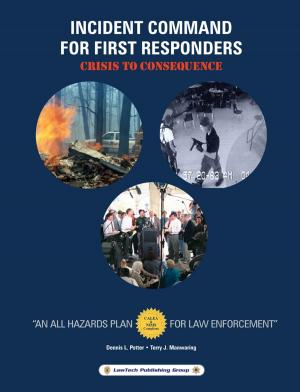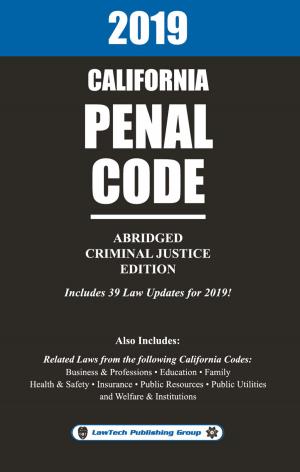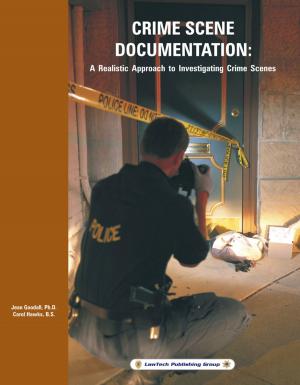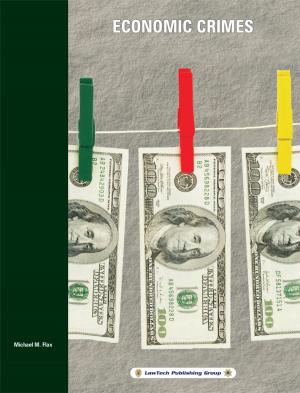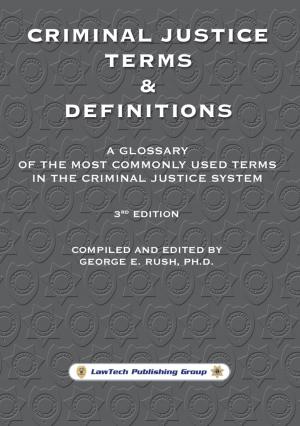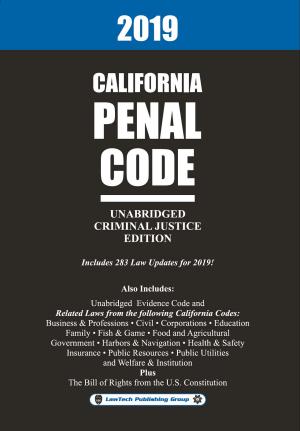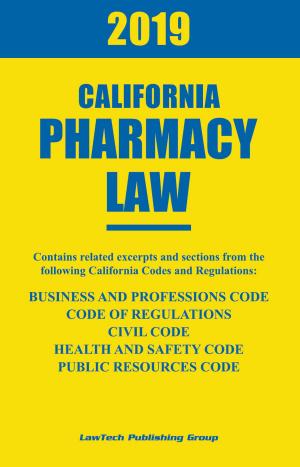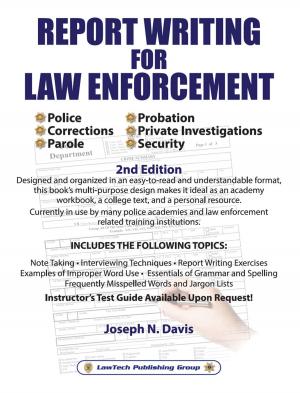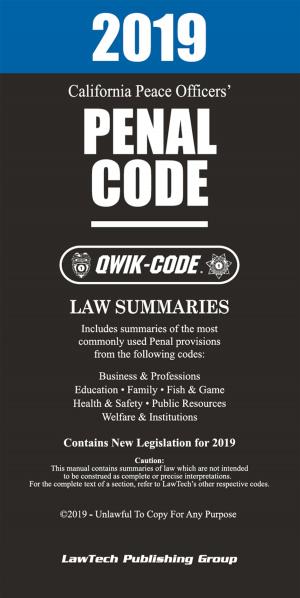Report Writing for Law Criminal Justice Professionals
Nonfiction, Social & Cultural Studies, Political Science, Politics, Law Enforcement, Reference & Language, Law, Criminal law| Author: | Joseph N. Davis | ISBN: | 9781563254864 |
| Publisher: | LawTech Publishing Group | Publication: | August 18, 2017 |
| Imprint: | LawTech Publishing Group | Language: | English |
| Author: | Joseph N. Davis |
| ISBN: | 9781563254864 |
| Publisher: | LawTech Publishing Group |
| Publication: | August 18, 2017 |
| Imprint: | LawTech Publishing Group |
| Language: | English |
Report Writing for Criminal Justice Professionals is a comprehensive textbook that recognizes that successful reports are the result of a preliminary investigation, interpersonal communication skills, and a well written narrative. Based on their years of law enforcement and teaching experience the authors have development a comprehensive textbook with supplemental materials to help students learn the preliminary investigation and report writing process. Using any of the nine video scenarios available on-line, students have the opportunity to immediately use the skills they’ve learned. The Instructor Material includes three additional scenarios for testing. Students also have access to report form templates that can be used to write computer generated reports, or printed and used in class for handwritten reports. Good report writing is key to successful prosecutions and avoiding lawsuits. In today’s litigious society, it’s critical for law enforcement officers to articulate their actions in writing. Semi-literate officers are a liability to themselves as well as their agency. More than at any other time in the history of law enforcement, the art of good report writing is essential. Society’s perception of law enforcement officers has taken a subtle shift from prestigious trusted protectors to “public servants” - servants who are often targeted by politicians, administrators, and lawyers alike when a controversial situation occurs.The tremendous potential impact of reports on individual law enforcement agencies, their officers, and the criminal justice system itself mandates that report writing be treated with all the seriousness and care of a principal training topic.It is important to remember that most law enforcement reports will be seen and read by many people, both inside and outside of the agency. While there are many different uses for law enforcement reports, perhaps the most important is in successful criminal prosecutions.
Report Writing for Criminal Justice Professionals is a comprehensive textbook that recognizes that successful reports are the result of a preliminary investigation, interpersonal communication skills, and a well written narrative. Based on their years of law enforcement and teaching experience the authors have development a comprehensive textbook with supplemental materials to help students learn the preliminary investigation and report writing process. Using any of the nine video scenarios available on-line, students have the opportunity to immediately use the skills they’ve learned. The Instructor Material includes three additional scenarios for testing. Students also have access to report form templates that can be used to write computer generated reports, or printed and used in class for handwritten reports. Good report writing is key to successful prosecutions and avoiding lawsuits. In today’s litigious society, it’s critical for law enforcement officers to articulate their actions in writing. Semi-literate officers are a liability to themselves as well as their agency. More than at any other time in the history of law enforcement, the art of good report writing is essential. Society’s perception of law enforcement officers has taken a subtle shift from prestigious trusted protectors to “public servants” - servants who are often targeted by politicians, administrators, and lawyers alike when a controversial situation occurs.The tremendous potential impact of reports on individual law enforcement agencies, their officers, and the criminal justice system itself mandates that report writing be treated with all the seriousness and care of a principal training topic.It is important to remember that most law enforcement reports will be seen and read by many people, both inside and outside of the agency. While there are many different uses for law enforcement reports, perhaps the most important is in successful criminal prosecutions.

